- Home
- Features
- Movies/Media
- Collectibles
- Comics/Books
-
Databases
-
Figure Database
>
-
X-Plus Toho/Daiei/Other
>
- X-Plus 30 cm Godzilla/Toho Part One
- X-Plus 30 cm Godzilla/Toho Part Two
- X-Plus Large Monster Series Godzilla/Toho Part One
- X-Plus Large Monster Series Godzilla/Toho Part Two
- X-Plus Godzilla/Toho Pre-2007
- X-Plus Godzilla/Toho Gigantic Series
- X-Plus Daiei/Pacific Rim/Other
- X-Plus Daiei/Other Pre-2009
- X-Plus Toho/Daiei DefoReal/More Part One
- X-Plus Toho/Daiei DefoReal/More Part Two
- X-Plus Godzilla/Toho Other Figure Lines
- X-Plus Classic Creatures & More
- Star Ace/X-Plus Classic Creatures & More
-
X-Plus Ultraman
>
- X-Plus Ultraman Pre-2012 Part One
- X-Plus Ultraman Pre-2012 Part Two
- X-Plus Ultraman 2012 - 2013
- X-Plus Ultraman 2014 - 2015
- X-Plus Ultraman 2016 - 2017
- X-Plus Ultraman 2018 - 2019
- X-Plus Ultraman 2020 - 2021
- X-Plus Ultraman 2022 - 2023
- X-Plus Ultraman Gigantics/DefoReals
- X-Plus Ultraman RMC
- X-Plus Ultraman RMC Plus
- X-Plus Ultraman Other Figure Lines
- X-Plus Tokusatsu
- Bandai/Tamashii >
- Banpresto
- NECA >
- Medicom Toys >
- Kaiyodo/Revoltech
- Diamond Select Toys
- Funko/Jakks/Others
- Playmates Toys
- Art Spirits
- Mezco Toyz
-
X-Plus Toho/Daiei/Other
>
- Movie Database >
- Comic/Book Database >
-
Figure Database
>
- Marketplace
- Kaiju Addicts
|
Akira Ifukube (伊福部 昭 Ifukube Akira, 31 May 1914 – 8 February 2006) was a Japanese composer of classical music and film scores, perhaps best known for his work on the soundtracks of the Godzilla movies by Toho. Biography Akira Ifukube was born on May 31, 1914 in Kushiro on the Japanese island of Hokkaidō, the third son of a Shinto priest. Much of his childhood was spent in areas with a mixed Japanese and Ainu population, and his father, unusually for the time, socialised with Ainu. Ifukube was strongly influenced by the traditional music of both peoples, and studied the violin and the shamisen. His first encounter with classical music occurred when attending secondary school in Hokkaidō's capital, Sapporo. Legend has it that Ifukube decided to become a composer at the age of 14 after hearing a radio performance of Igor Stravinsky's ballet, The Rite of Spring. He also cited the music of Manuel de Falla as a major influence. Ifukube went on to study forestry at Hokkaido University and composing in his spare time, which prefigured a line of self-taught Japanese composers such as Tōru Takemitsu and Takashi Yoshimatsu. His first piece was the piano solo, Piano Suite (later the title was changed to Japan Suite, arranged for orchestra). This piece was dedicated to the pianist George Copeland who was then living in Spain. Atsushi Miura, musicologist and Ifukube's friend in university, sent a fan letter to Copeland. Copeland replied, "It is wonderful that you listen my disc in spite of you living in Japan, the opposite side of the earth. I imagine you may compose music. Send me some piano pieces." Then Miura, who was not a composer, presented Ifukube and this piece to Copeland. Copeland promised to interpret it, but the correspondence was unfortunately stopped because of the Spanish Civil War. Ifukube's big break came in 1935, when his first orchestral piece, Japanese Rhapsody, won the first prize in an international contest for young composers promoted by Alexander Tcherepnin. The judges of that contest—Albert Roussel, Jacques Ibert, Arthur Honegger, Alexandre Tansman, Tibor Harsányi, Pierre-Octave Ferroud, and Henri Gil-Marchex—were unanimous in their selection of Ifukube as the winner. The next year, Ifukube studied modern Western composition while Tcherepnin was visiting Japan, and in 1938 his Piano Suite obtained an honourable mention at the I.C.S.M. festival in Venice. In the late 1930s his music, especially Japanese Rhapsody, was performed in Europe on a number of occasions. On completing University, he worked as a forestry officer and lumber processor, and towards the end of the Second World War was appointed by the Japanese Imperial Army to study the elasticity and vibratory strength of wood. He suffered radiation exposure after carrying out x-rays without protection, a consequence of the wartime lead shortage. Thus, he had to abandon forestry work and became a professional composer and teacher. Ifukube spent some time in hospital due to the radiation exposure, and was startled one day to hear one of his own marches being played over the radio when General Douglas MacArthur arrived to formalize the Japanese surrender. From 1946 to 1953, he taught at the Nihon University College of Art, during which period he composed his first film score for The End of the Silver Mountains, released in 1947. Over the next fifty years, he would compose more than 250 film scores, the high point of which was his 1954 music for Ishirō Honda's Toho movie, Godzilla. Ifukube also created Godzilla's trademark roar – produced by rubbing a resin-covered leather glove along the loosened strings of a double bass – and its footsteps, created by striking an amplifier box. Despite his financial success as a film composer, Ifukube's first love had always been his general classical work as a composer. In fact his compositions for the two genres cross-fertilized each other. For example, he was to recycle his 1953 music for the ballet Shaka, about how the young Siddhartha Gautama eventually became the Buddha, for Kenji Misumi's 1961 film Buddha. Then in 1988 he reworked the film music to create his three-movement symphonic ode Gotama the Buddha. Meanwhile he had returned to teaching at the Tokyo College of Music, becoming president of the college the following year, and in 1987 retired to become head of the College's ethnomusicology department. He trained younger generation composers such as Toshiro Mayuzumi, Yasushi Akutagawa and Kaoru Wada, Yssimal Motoji and Imai Satoshi. He also published Orchestration, a 1,000-page book on theory. He died in Tokyo at Meguro-ku Hospital of multiple organ dysfunction on February 8, 2006 at the age of 91. Honors The Japanese government awarded Ifukube the Order of Culture. Subsequently, he was awarded the Order of the Sacred Treasure, Third Class. 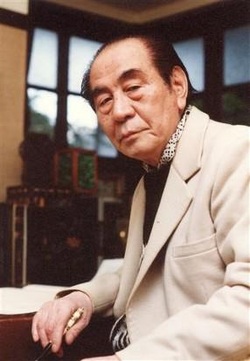 Selected Works Orchestral Japanese Rhapsody (1935) Triptyque aborigene for chamber orchestra (1937) Symphony Concertante for piano and orchestra (1941) Ballata sinfonica (1943) Overture to the Nation of Philippines (1944) Salome (1948) – ballet based on Oscar Wilde's play of the same name. Ifukube revised and expanded the score in 1987. The piece is written in a conservative, late-romantic style reminiscent of Rimsky-Korsakov, Mussorgsky or even Khachaturian. Drumming of Japan (1951, revised 1984) Symphonic Fantasia No. 1 (1954, revised 1983) Sinfonia Tapkaara (1954, revised 1979) Ritmica Ostinata for piano and orchestra (1961, revised 1971) Ronde in Burlesque for wind orchestra (1972, arranged to orchestra in 1983) Violin Concerto No. 2 (1978) Lauda concertata for marimba and orchestra (1979) Symphonic Fantasia No. 2 (1983) Symphonic Fantasia No. 3 (1983) Gotama the Buddha, symphonic ode for mixed chorus and orchestra (1989) Japanese Suite for orchestra (1991) Japanese Suite for string orchestra (1998) 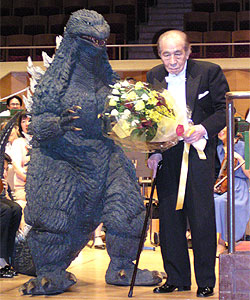 Chamber And Instrumental Piano Suite (1933) Toccata for guitar (1970) Fantasia for baroque lute (1980) Sonata for violin and piano (1985) Ballata sinfonica for duo-treble and bass 25-stringed koto (2001) Vocal Ancient Minstrelsies of Gilyak Tribes (1946) Three Lullabies among the Native Tribes on the Island of Sakhalin (1949) Eclogues after Epos among Aino Races for solo voice and 4 kettle drums (1950) A Shanty of the Shiretoko Peninsula (1960) The Sea of Okhotsk for soprano, bassoon, piano (or harp) and double bass (1988) Tomo no oto for traditional ensemble and orchestra (1990) Lake Kimtaankamuito (Lake Mashū) (摩周湖 Mashū-ko?) for soprano, viola and harp or piano (1992) La Fontaine sacrée for soprano, viola, bassoon and harp (1964, 2000); arrangement by the composer from the 1964 film score Mothra vs. Godzilla. 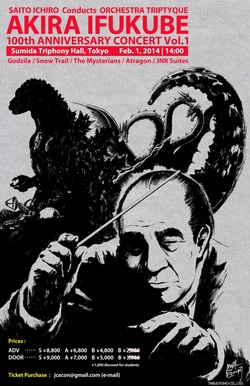 Film Scores Snow Trail (1947) The Quiet Duel (1949) Anatahan (アナタハン), also known as The Saga of Anatahan (1953) Godzilla (1954) Dobu (film) 1954 Ningen gyorai kaiten (1955) The Burmese Harp (1956) Rodan (1956) The Mysterians (1957) Varan the Unbelievable (1958) The Birth of Japan (1958) Battle in Outer Space (1959) The Big Boss (Boss of the Underworld) (1959) Daredevil in the Castle (1961) The Tale of Zatoichi (1962) King Kong vs. Godzilla (1962) Chushingura (1962) Wanpaku Ouji no Orochi Taiji (1963) Atragon (1963) Zatoichi the Fugitive (1963) Zatoichi on the Road (1963) Fight, Zatoichi, Fight (1964) Mothra vs. Godzilla (1964) Dogora (1964) Ghidorah, the Three-Headed Monster (1964) Whirlwind (1964) Frankenstein Conquers the World (1965) Invasion of Astro-Monster (1965) The War of the Gargantuas (1966) Daimajin (1966) Wrath of Daimajin (1966) Return of Daimajin (1966) King Kong Escapes (1967) Zatoichi Challenged (1967) Destroy All Monsters (1968) Latitude Zero (1969) Space Amoeba (1970) Godzilla vs. Gigan (1972) Sandakan No. 8 (1974) Terror of Mechagodzilla (1975) Lady Origin (1978) Dozoku no ranjo (1991) Godzilla vs. King Ghidorah (1991) Godzilla vs. Mothra (1992) Godzilla vs. Mechagodzilla II (1993) Kushiro Marshland (1993) Godzilla vs. Destoroyah (1995) In addition, his work were also used in Godzilla vs. Biollante, Godzilla vs. SpaceGodzilla, Godzilla 2000, Godzilla vs. Megaguirus, Godzilla, Mothra and King Ghidorah: Giant Monsters All-Out Attack, and Godzilla: Final Wars.
0 Comments
Leave a Reply. |
ArchivesCategories
All
|
|
© 2011-2024 Kaiju Battle. All Rights Reserved.
|
Visit Our Social Media Sites
|
Proudly powered by Weebly
|
- Home
- Features
- Movies/Media
- Collectibles
- Comics/Books
-
Databases
-
Figure Database
>
-
X-Plus Toho/Daiei/Other
>
- X-Plus 30 cm Godzilla/Toho Part One
- X-Plus 30 cm Godzilla/Toho Part Two
- X-Plus Large Monster Series Godzilla/Toho Part One
- X-Plus Large Monster Series Godzilla/Toho Part Two
- X-Plus Godzilla/Toho Pre-2007
- X-Plus Godzilla/Toho Gigantic Series
- X-Plus Daiei/Pacific Rim/Other
- X-Plus Daiei/Other Pre-2009
- X-Plus Toho/Daiei DefoReal/More Part One
- X-Plus Toho/Daiei DefoReal/More Part Two
- X-Plus Godzilla/Toho Other Figure Lines
- X-Plus Classic Creatures & More
- Star Ace/X-Plus Classic Creatures & More
-
X-Plus Ultraman
>
- X-Plus Ultraman Pre-2012 Part One
- X-Plus Ultraman Pre-2012 Part Two
- X-Plus Ultraman 2012 - 2013
- X-Plus Ultraman 2014 - 2015
- X-Plus Ultraman 2016 - 2017
- X-Plus Ultraman 2018 - 2019
- X-Plus Ultraman 2020 - 2021
- X-Plus Ultraman 2022 - 2023
- X-Plus Ultraman Gigantics/DefoReals
- X-Plus Ultraman RMC
- X-Plus Ultraman RMC Plus
- X-Plus Ultraman Other Figure Lines
- X-Plus Tokusatsu
- Bandai/Tamashii >
- Banpresto
- NECA >
- Medicom Toys >
- Kaiyodo/Revoltech
- Diamond Select Toys
- Funko/Jakks/Others
- Playmates Toys
- Art Spirits
- Mezco Toyz
-
X-Plus Toho/Daiei/Other
>
- Movie Database >
- Comic/Book Database >
-
Figure Database
>
- Marketplace
- Kaiju Addicts

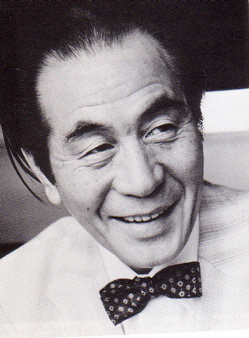
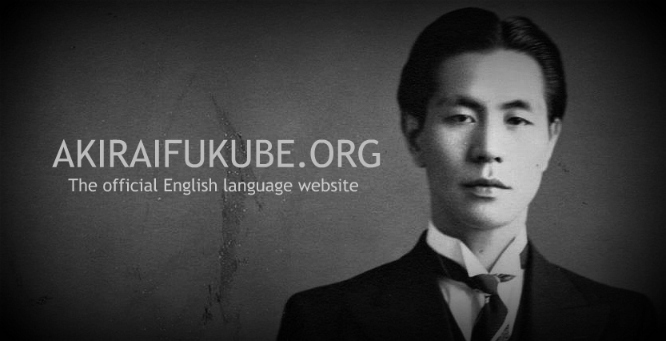
 RSS Feed
RSS Feed